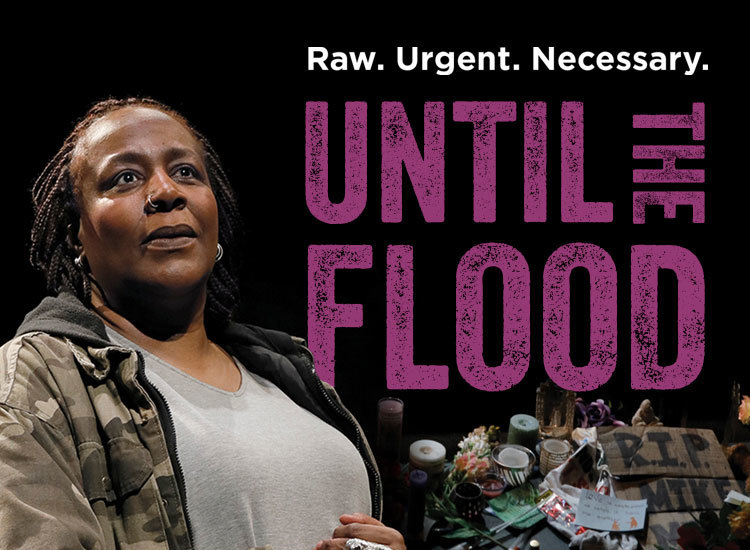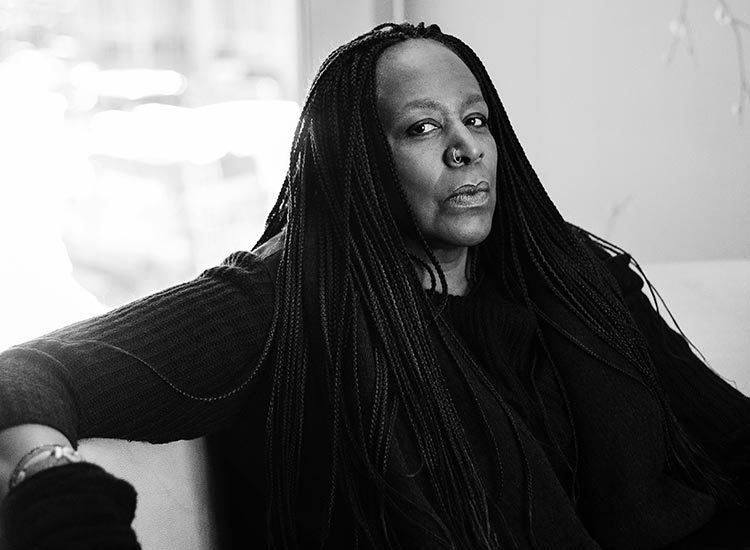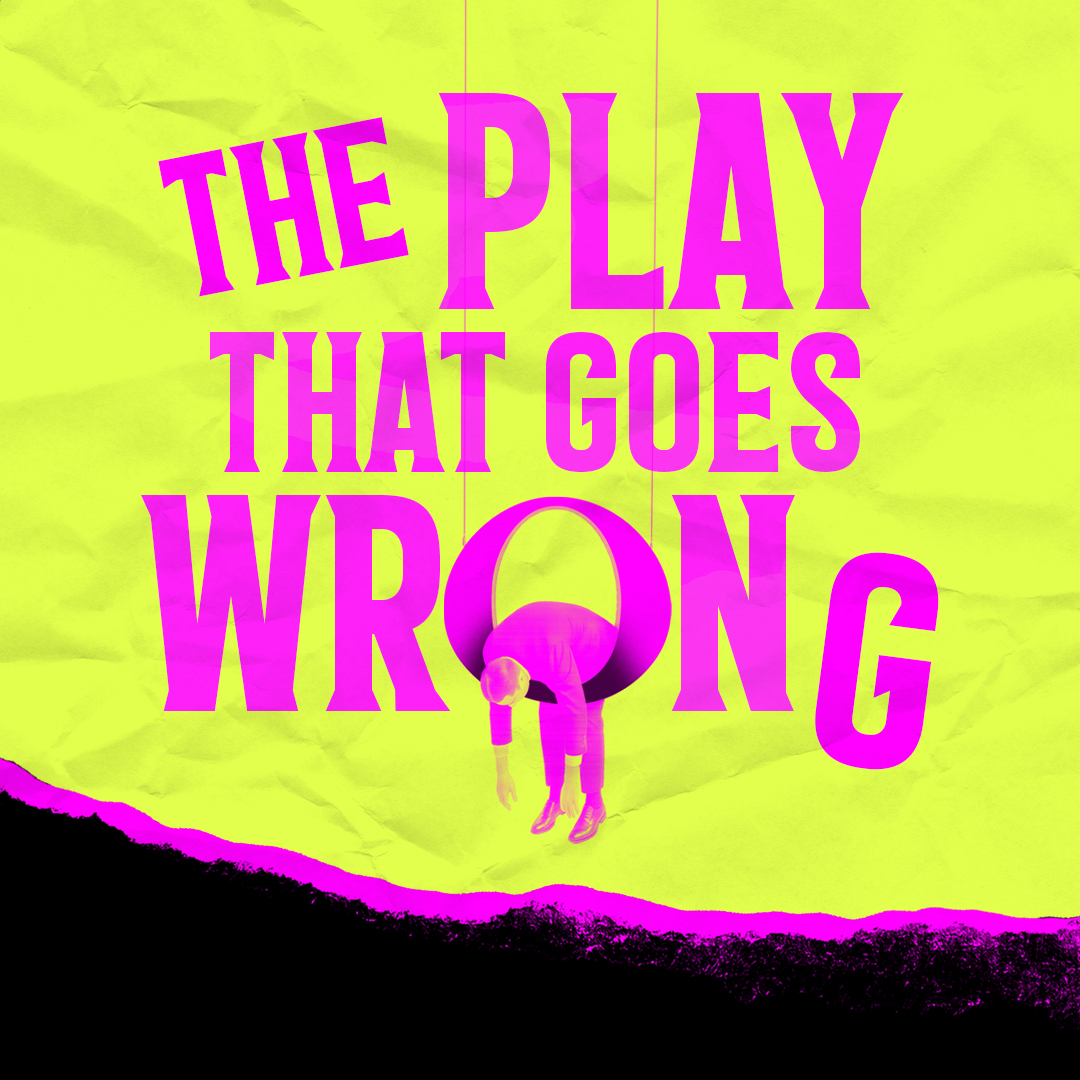Timeline of Events: "Until The Flood"
Michael Brown Timeline
On August 9, 2014, Michael Brown, a recent high school graduate from Ferguson, is shot and killed by police officer Darren Wilson. Read below for a timeline of events leading up to and following the shooting.
THE INCIDENT
- 11:54 AM Michael Brown and a friend, Dorian Johnson, leave Ferguson Market and Liquor, where Brown is shown stealing cigarillos on surveillance footage.
- 12:01 PM Officer Darren Wilson arrives to find the two men walking down the middle of Canfield Drive. Through the open window of his police cruiser, Wilson also notices that Brown fits the description of the convenience store theft suspect.
- 12:02 PM Officer Wilson calls dispatch about Brown and Johnson. He moves his car to block the two men and traffic. Between 12:02 and 12:04, an altercation occurs between Office Wilson and Brown. Officer Wilson fires two shots from inside his police cruiser. Brown runs east down Canfield Drive pursued by Wilson. Brown stops and moves back towards Wilson. Officer Wilson fatally wounds Brown.
- 12:04 PM Other officers arrive on Canfield Drive to find Michael Brown dead.
THE AFTERMATH
- AUGUST 10, 2014 St. Louis County Police hold a press conference; they report that Brown is shot because he reaches for an unnamed officer's gun. Demonstrators gather at a makeshift memorial near where Michael Brown is killed. Looting and violence erupts in Ferguson.
- AUGUST 11, 2014 The Brown family holds their own press conference and demand justice for Michael. The FBI joins the investigation into Michael Brown's death. That night violence continues. Police respond with tear gas and rubber bullets.
- AUGUST 12, 2014 President Obama addresses the shooting for the first time. Violence continues that night.
- AUGUST 13, 2014 Protesters throw Molotov cocktails and police deploy armored vehicles as riots continue. Police arrest two reporters.
- AUGUST 14, 2014 The Missouri Highway Patrol takes control of law enforcement operations on the ground in Ferguson.
- AUGUST 15, 2014 Ferguson Police Chief Thomas Jackson holds a press conference announcing Darren Wilson's name and releasing surveillance footage from Ferguson Market and Liquor.
- AUGUST 16, 2014 Governor Nixon declares a state of emergency and imposes a curfew in Ferguson
- AUGUST 18, 2014 The National Guard deploys to Ferguson as protests continue.
- AUGUST 20, 2014 A grand jury convenes to determine whether Darren Wilson should be criminally charged in the death of Michael Brown. For the first time in ten days, no protests occur.
- AUGUST 21, 2014 The National Guard withdraws from Ferguson.
- AUGUST 25, 2014 A funeral is held for Michael Brown.
- NOVEMBER 16, 2014 Protesters stage a "die in" to commemorate 100 days since Michael Brown's death.
- NOVEMBER 17, 2014 Governor Nixon declares a state of emergency in anticipation of more unrest leading up to the grand jury decision.
- NOVEMBER 25, 2014 The grand jury decides not to indict Darren Wilson. This announcement causes rioting across Ferguson. At least a dozen buildings and one vehicle are lit on fire. To disperse rioters, authorities use tear gas and smoke.
- AUGUST 9, 2015 Demonstrators gather in Ferguson in honor of the one-year anniversary of Michael Brown's death.
CIVIL RIGHTS MOVEMENT TIMELINE
The events that happen in Ferguson were of course not the first of their kind and unfortunately have not been the last.
To better understand the events in Ferguson in 2014, we have collected an examination of the history of race relations in the United States and a brief look at other riots and protests that have shaped our nation.
- 18th CENTURY Slavery is a practice of the colonies, even before the United States declares its independence in 1776.
- 1781 The Articles of Confederation, the first document establishing the first U.S. government, are adopted. There is no mention of slavery.
- 1788 The United States Constitution is ratified. Congress is banned from abolishing slavery until 1808 and free states are banned from establishing rules to protect runaway slaves. The three-fifths rule is established; thereby each slave counts as three-fifths a person in the population.
- 1820 The Missouri Compromise of 1820 permits slavery in Missouri, but prohibits slavery in parts of the Louisiana Purchase.
- 1857 The Supreme Court declares that African Americans are not citizens of the United States in the case Dred Scott v. Sanford.
- 1861 After several southern states secede, the Civil War begins.
- 1863 President Abraham Lincoln issues the Emancipation Proclamation, freeing slaves in the Confederacy.
- 1865 The 13th Amendment passes, abolishing slavery.
- 1866 Under the Civil Rights Act of 1866, all people who live in the U.S. are guaranteed Equal Rights.
- 1870 African Americans are granted the right to vote with the 15th Amendment, which declares race or previous slavery cannot bar individuals from voting.
- 1896 The Supreme Court rules that segregation is legal if "separate, but equal" in the case Plessy v. Ferguson.
- 1954 "Separate, but equal" is struck down when the Supreme Court ends public school segregation in the case Brown v. Board of Education
- 1957 The Civil Rights Act of 1957 establishes the Civil Rights Commission, which provides equal protection to all people's right to vote.
- MARCH 1965 African Americans lead three marches from Selma, Alabama. The first march on March 7 results in Bloody Sunday, a peaceful march stops as a result of a police blockade at the Edmund Pettus Bridge, police attack the demonstrators with billy clubs, tear gas, and bullwhips. On March 9, Dr. Martin Luther King leads a group back to the bridge and prays. On March 21 through 25, demonstrators receive National Guard protection and march from Selma to Montgomery.
- AUGUST 1965 The Voting Rights Act of 1965 enables more African Americans to vote with enforcement measures to protect voter rights.
- APRIL 4, 1968 Martin Luther King,Jr. is assassinated. His death sparks riots and demonstrations in over one hundred cities across the nation. One of the largest riots occurred on Chicago's West Side, where one hundred and sixty-two buildings burn to the ground, leaving five hundred injured and nine dead.
- APRIL 11, 1968 Civil Rights Act of 1968 outlaws housing based on race, religion, national origin and sex.
- JULY 1970 Riots occur in Michigan City, Indiana after a parking violation that results in police subduing and arresting three black men. The two-day riots result in the destruction of several properties and nine injuries.
- 1988 The Civil Rights Restoration Act expands nondiscrimination laws to private groups who receive federal funds.
- 1992 March 1991, after a high-speed chase through Los Angeles, the police beat driver Rodney King. On April 29, 1992, the case reaches a verdict of not guilty. This verdict sparks riots across the city, resulting in the deaths of fifty-five people. Rodney King used the traumatic experience to educate people on police brutality, and wrote a book following the events. He later die to unrelated causes.
- 2012 Fast forward several decades to February 2012. A neighborhood watch captain, George Zimmerman, shoots seventeen-year old Trayvon Martin under the claim of self defense. Rallies organize in support of the Martin family in cities around the country. Zimmerman is charged with second-degree murder.
- 2013 After a trial in 2013, Zimmerman is found not guilty.
Portland Center Stage is committed to identifying & interrupting instances of racism & all forms of oppression, through the principles of inclusion, diversity, equity, & accessibility (IDEA).













